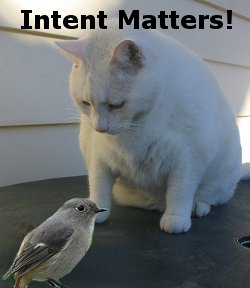
I often try to relate concepts of SEO and social media to things that people in other industries can use. After all, who really cares about all of this, unless it can help them do whatever it is they do for a living.
If you don’t have anything to sell, you probably aren’t very concerned about your marketing. But you do have something to sell, so let me give you a hand.
My challenge is to help you translate this into earning profit for your company. In the big picture, two important questions I must address are as follows:
- What do you do to earn the food you eat?
- How can I relate this Internet stuff to something that will help you eat better?
One way I hope to relate this into your line of work is to use analogies. This time, I will use tennis balls, but it could really be about anything.
Now let’s look at what others competing in your industry are doing.
How Others Sell Balls With SEO and Social Media
A common approach to social media that you may see with your competitors is to create a website and then start tweeting and facebooking things like “I have balls”, “Check out my balls!” After a while, they will figure out that people get really tired of the same old balls, and nobody wants to see them anymore.

This is a common outcome when companies neglect the people they are trying to reach, and overlook creativity in their value proposition. So, it will take a different approach, and they may turn their focus to SEO. They will often fill up their blog with a whole bunch of articles about their balls and hope that will work.
The trouble here is that it will take a lot of time and effort to produce all of that blog content. They may decide to outsource it to India or The Philippines but all of the sudden find themselves sending really mixes messages. Balls are different in other countries, and a lot can be lost in translation.
This is not the path you want to take, so put this out of your mind and let’s think about a better way to move your balls.
A Better Way to Move Your Balls
My experience in SEO and social media has led me to this: I have never found an industry that, with enough dedication, cannot be made more interesting when looked at from the right perspective.
It takes some research and creativity, but every industry has something that makes it interesting. Even paper clips can be more exciting … yes, paper clips!

One of the first things to do is to carefully research who wants your balls. You want to understand them, and what they are likely to look for online. You want to reach them where they are … on their turf. Then you need to get a picture of what drives them to take a desired action. In this case, you want tennis players. More precisely, you want tennis players without balls. In order to find them, you need to think more like them, and develop a sense of what will attract them.
Sometimes you have to look outside of the tennis-related industry to find your potential customers’ other interests. I wrote about this not so long ago in an article about customer modeling titled “Facebook Marketing: Pages, Customer Modeling, Promoting, and Awesomeness“. It addressed how to gather information to produce a better model of your ideal customer, and it is worth a read.
Get Others to Talk About Your Balls!
Once you know more about your model customer, you need to produce information that interests them. If you consistently produce quality information about their interests, it will be much easier to keep their attention. If it is compelling enough, they will subscribe to your blog, your Twitter, your Facebook, and etcetera. Now you have an audience that wants to hear about your balls.

With an attentive audience that likes what you do, it will be a lot easier for your balls to be ranked well in search engines. This is because your attentive audience will share your information with other interested people, in the form of website links. They will tweet it, facebook it, and even blog about it. Now, unlike your competitor who talks about his balls all the time, you will have other people talking about your balls.
This is a huge reward to you, because all of those links to your interesting website are crucial to making it rank higher in search engines than the competition. You will want to be good to these people, and keep them fed with more interesting and useful information. So you add more to your blog, and it grows bigger and bigger and eventually gets even more popular.
The cycle has begun, and you are on your way to greater things. You may even decide to grow your business with bigger balls, like softballs, volleyballs, and basketballs.
Selling Balls Takes Dedication
When I claim that this all requires dedication, it means spending time researching, and doing more than just the same old thing the competition is doing.

Before you put this all to use, it is best to develop some degree of marketing talent. Since you are not in the SEO and social media marketing business by profession, I want to recommend subscribing to my blog and reviewing my blog archive to learn about other things that can help you.
I do a bang up job of ranking in search engines for things in the SEO and social media marketing industries. I am supposed to, right? That way, new people can find me.
This was not always the case. I had to work really hard to discover what people want, connect with them using social media, and produce a lot of compelling information, just like I suggested for you. It does not happen overnight, but with dedication, it does happen in time. It will be worth it.
Now, back to those two questions I mentioned earlier:
- What do you do to earn the food you eat?
- How can I relate this Internet stuff to something that will help you eat better?
Since you can’t just eat your balls, you are going to need to sell them to buy food!

If you do everything just right, before you know it, people will be begging to play with your balls.
If you need more help promoting your balls, there are a lot of people in my industry who can make this happen for you.
I am always looking for people with balls. In my line of work, I encounter a lot of people every day who have no balls, and I will be happy to help you connect with them.
Balls image credit to shawnzrossi via Flickr
Old ball image credit to basykes via Flickr
Ball in mouth image credit to TCL8TO7 via Flickr
Splashing Balls image credit to ingridtaylar via Flickr
Bored ball image credit to greenkozi via Flickr
Begging image credit to sunsets_for_you via Flickr



